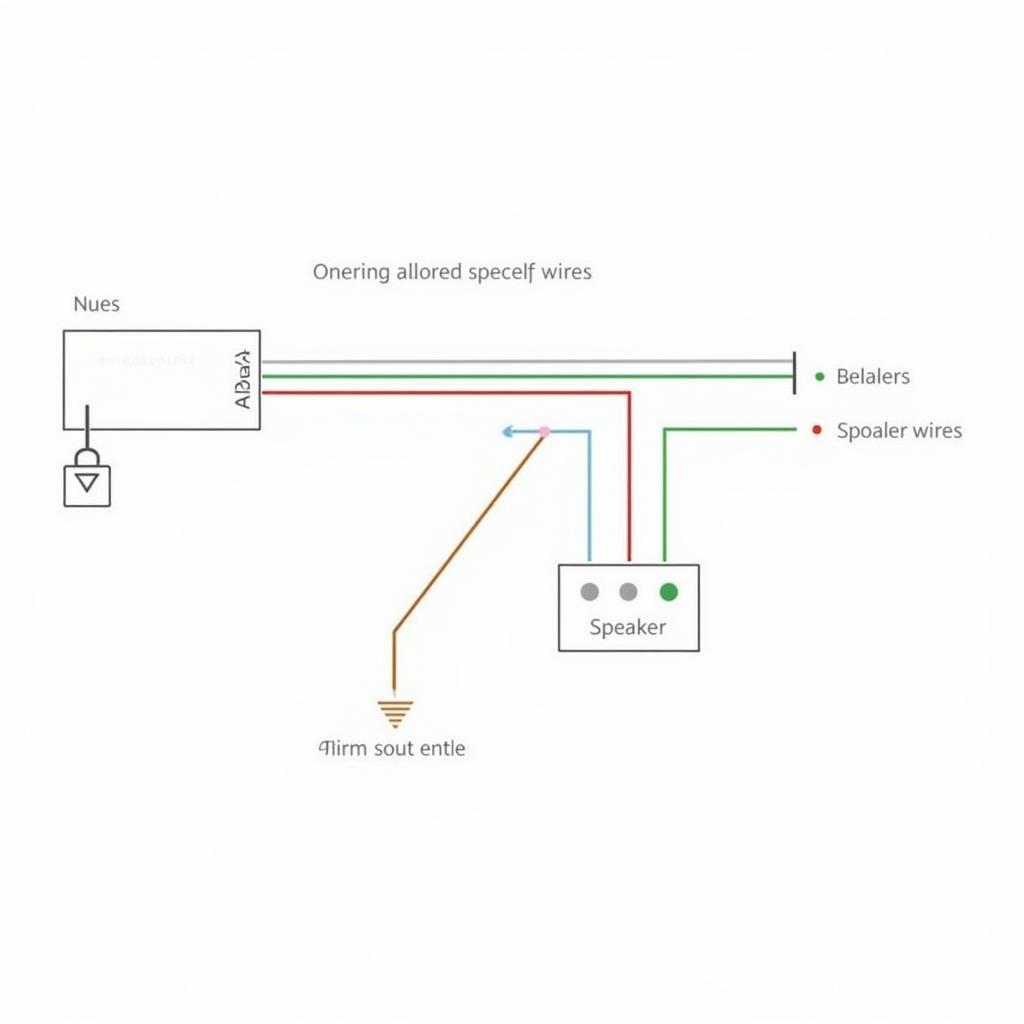The dreaded passat b5 brake warning light can be a source of anxiety for any driver. This light signals a potential problem within your braking system, demanding immediate attention. Whether it’s a minor issue or a significant malfunction, understanding the causes and solutions is crucial for your safety and the longevity of your vehicle.
The illumination of your Passat B5’s brake warning light can stem from a variety of issues, from worn brake pads to more complex problems with the brake fluid level or ABS system. This article provides a comprehensive guide to help you diagnose and address the underlying cause, offering practical solutions and expert insights. After reading this, you’ll be equipped to tackle this issue head-on, saving you time, money, and potential headaches down the road. You may find the information on passat b5 brake pad warning light helpful in your initial troubleshooting.
Understanding the Passat B5 Brake System
The Passat B5’s braking system is a complex network of components working together to ensure safe and efficient stopping power. Key components include the master cylinder, brake lines, calipers, rotors, and brake pads. A problem with any of these parts can trigger the brake warning light.
Common Causes of the Brake Warning Light
Several factors can cause the passat b5 brake warning light to illuminate. These include:
- Worn Brake Pads: This is the most common culprit. Brake pads have wear indicators that trigger the warning light when they reach a certain thickness.
- Low Brake Fluid: A drop in brake fluid level can indicate a leak in the system, which requires immediate attention.
- Faulty Brake Sensor: The brake pad wear sensors themselves can sometimes malfunction, triggering the warning light even with sufficient pad material.
- ABS Issues: Problems with the Anti-lock Braking System (ABS) can also trigger the warning light, although this is usually accompanied by an additional ABS warning light.
- Parking Brake Engaged: Sometimes, the simple oversight of leaving the parking brake engaged can cause the light to illuminate.
Diagnosing the Problem
Identifying the root cause of the passat b5 brake warning light requires a systematic approach.
Checking Brake Pad Thickness
Begin by inspecting your brake pads. If they are worn down to the wear indicators, replacement is necessary.
Inspecting Brake Fluid Level
Check the brake fluid reservoir. If the level is low, there’s likely a leak somewhere in the system.
Testing Brake Sensors
A multimeter can be used to test the functionality of the brake pad wear sensors.
Diagnosing ABS Issues
If you suspect an ABS problem, diagnostic tools can be used to pinpoint the specific fault code. For the 2002 model specifically, resources on vw passat 2002 brake pad warning light can be particularly useful.
“Regular brake system checks are crucial,” says automotive expert, John Miller, ASE Certified Master Technician. “Early detection can prevent minor issues from escalating into costly repairs.”
Solutions and Repairs
Once you’ve diagnosed the problem, you can proceed with the appropriate repair.
Replacing Brake Pads
Replacing brake pads is a relatively straightforward process that can be done with basic tools.
Addressing Low Brake Fluid
If you find low brake fluid, first locate and repair the leak. Then, refill the reservoir with the correct type of brake fluid.
Replacing Brake Sensors
Faulty brake sensors should be replaced to ensure accurate monitoring of brake pad wear. If you are experiencing similar issues on your B5.5, you can refer to information regarding the passat b5.5 brake pad warning light.
Repairing ABS Issues
ABS repairs can be more complex and often require specialized tools and expertise.
“Ignoring the brake warning light can lead to serious safety hazards,” warns Sarah Chen, automotive engineer. “Addressing the problem promptly ensures optimal braking performance and prevents potential accidents.”
Conclusion
The passat b5 brake warning light is a crucial safety indicator that should never be ignored. By understanding the potential causes and following the diagnostic steps outlined in this article, you can effectively address the issue and ensure the safety and reliability of your Passat B5. Regular maintenance and prompt attention to warning lights are key to preventing costly repairs and ensuring a safe driving experience. Don’t forget to check resources like the front brake warning tab for more specific information.
FAQ
- What does the passat b5 brake warning light mean? It indicates a potential problem with your braking system, such as worn brake pads, low brake fluid, or an ABS issue.
- Is it safe to drive with the brake warning light on? It’s not recommended. The light signals a potential safety hazard, and continuing to drive could lead to further damage or even brake failure.
- How do I check my brake pads? You’ll need to remove the wheel to visually inspect the brake pads. Look for the wear indicator, a small metal tab that makes contact with the rotor when the pads are worn.
- What type of brake fluid does a Passat B5 use? Consult your owner’s manual for the specific type of brake fluid recommended for your model year.
- How much does it cost to replace brake pads on a Passat B5? The cost varies depending on the type of brake pads and labor rates in your area. Getting quotes from multiple mechanics is recommended.
- Can I replace brake pads myself? Yes, with basic mechanical skills and the right tools, you can replace brake pads yourself. However, if you’re unsure, it’s best to consult a professional mechanic.
- How often should I check my brake fluid? It’s a good practice to check your brake fluid level every time you check your other fluids, such as oil and coolant. Checking the brake fluid before an extended road trip is also recommended. Similar concerns may apply to other vehicles like the Audi A6 C5; you can find relevant information on audi a6 c5 brake light warning.

